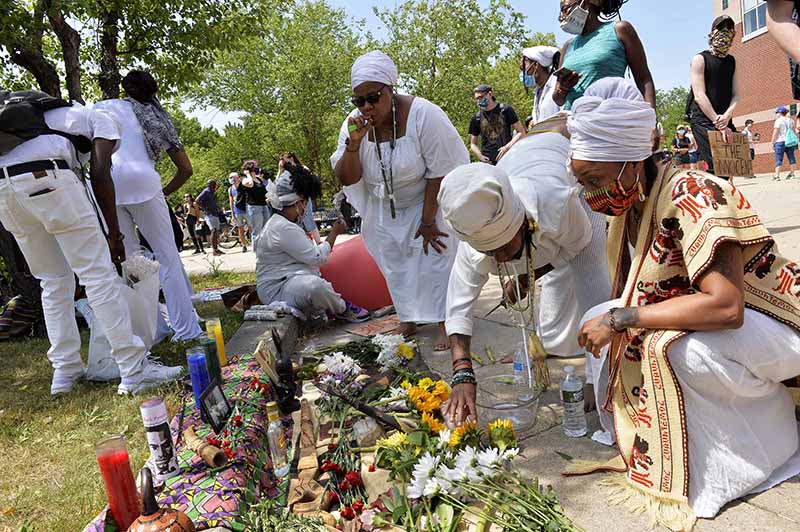
WASHINGTON: As the wave of anti-racism protests rocking the United States brings down monuments to figures linked to the country’s history of slavery, the spotlight is shifting to historic characters long considered untouchable. Although protesters initially focused on removing statues of Confederate generals, the movement has begun to turn its focus to icons of US history, including the nation’s founders Thomas Jefferson and George Washington, and President Theodore Roosevelt.
The death of George Floyd, a black man, in Minneapolis police custody on May 25 has sparked debate around statues and monuments honoring people central to the US’ slave system, some of which have been pulled down or vandalized. The ongoing protests are “a battle over the narrative of American history in the realm of statues,” Carolyn Gallaher, a professor at American University in Washington, told AFP. “In the South, people decided to venerate confederates. Protesters are saying, ‘No more.’” Slavery served as the economic backbone of the American South until the end of the American Civil War (1861-1865), and has left a lasting mark on both daily culture and stereotypes and perceptions of the region.
In Virginia, where some of the first English colonies were established before becoming the heart of American slave country, protesters have called for the removal of a statue of General Robert E Lee, the leader of the Confederate army. The statue, whose pedestal has already been covered with anti-racist graffiti, has held pride of place for a century in Richmond, the Confederate capital during the Civil War. In Washington, a statue of Confederate general Albert Pike was torn down last week. Increasingly, other figures who hold large places in American history are also not safe, and on Monday evening a crowd tried to topple the statue of Andrew Jackson, the seventh president, in Lafayette Park, close to the White House.
Thomas Jefferson, the third US president, has been the target of some protesters, with many statues of the leader vandalized. Even though he was one of the authors of the Declaration of Independence, he also owned more than 600 slaves and viewed black men as inferior to white, according to the website of his Virginia plantation-turned-museum, Monticello.—AFP










